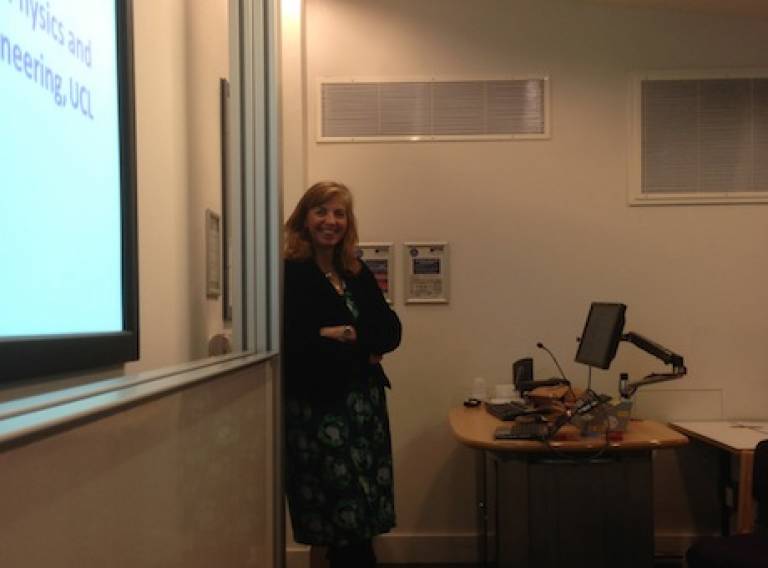CASA at the U3A/UCL lecture day
22 April 2013

Friday saw the first UCL/U3A lecture day, hosted at UCL for U3A delegates. The University of the Third Age (U3A) is a volunteer-run organisation which promotes learning for retirees and people no longer working full-time, organising lectures, seminars and events. Last week featured UCL lecturers talking to U3A members in a Cafe Scientifique format. The "Cafe Sci" format flips the traditional lecture on its head, and starts with a short talk from the academic (20 minutes or less) followed by an hour of questions and discussion from the audience. In the morning CASA lecturer Martin Zaltz Austwick chaired sessions from Medical Physicist Clare Elwell (pictured above), whose fascinating talk on scanning infant brains in Gambia to understand the impacts of malnutrition led into discussions on culture, women's education and, of course, physics; in the afternoon, statistician Patrick Wolfe talked about the importance of networks in our world, and how mathematics might help us to understand some of the complex structures in our society. Parallel sessions by Sophie Scott on the neuroscience of speech and by Robert Harvey on the well-being and genetics ensured a varied mix of science was on offer.
During the lunch break, CASA PhDs Pete Ferguson and Panos Mavros dropped in to talk about their research (on the structure of cities, and the neuroscience of place, respectively) with the delegates over a sandwich and a cup of coffee. Lizzy Baddeley and Gemma Moore of the UCL Public Engagement unit (ably assisted by host Steve Cross) were the ringleaders on the UCL side, and succeeded in creating an event where participants had unique access to researchers to chat to them, understand their ideas, put forward their own perspectives, and, in the cafe sci sessions, enter into larger discussions on the ideas and issues around the science being presented.
 Close
Close

